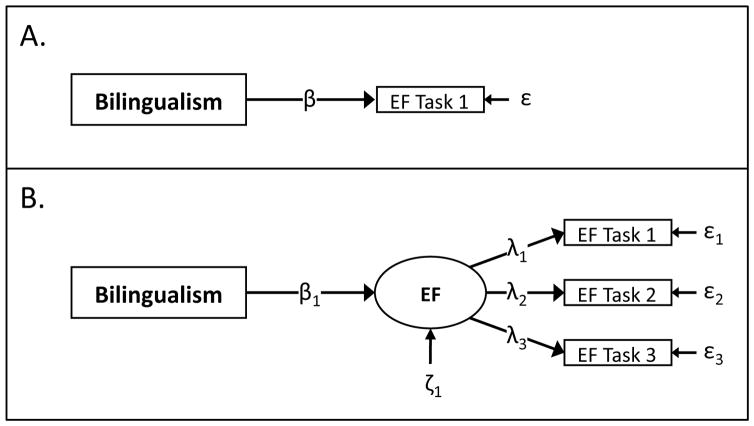Figure 1.
Models of the bilingual advantage hypothesis with a single executive function (EF) task (panel A) vs. an EF latent variable (panel B). In panel A, β is the direct effect of bilingualism on the EF measure. In panel B, bilingualism influences the EF tasks through the latent EF variable (path β1). Squaring the loadings of the tasks on the latent variable (λi) provides an estimate of the variance in each task attributable to the EF; the remaining variance (i.e., task impurity and unreliability) is captured by the εi. In this way, latent variables separate true EF variance from task impurity and unreliability, allowing for an estimate of the true effect on the underlying EF. If these models were estimated with the same data, β from panel A would equal β1*λ 1 from panel B. Thus, when individual tasks are used as in panel A, the true effect (β1) will be attenuated to the extent that the tasks used are impure and unreliable.

